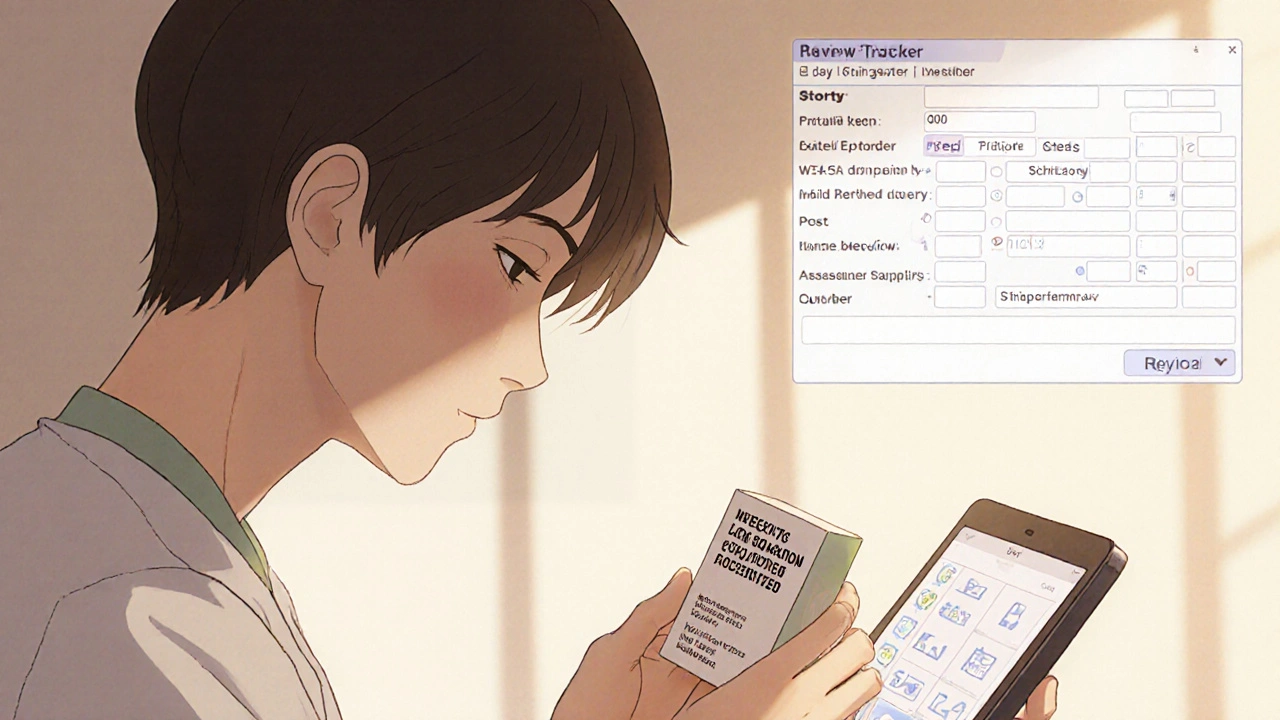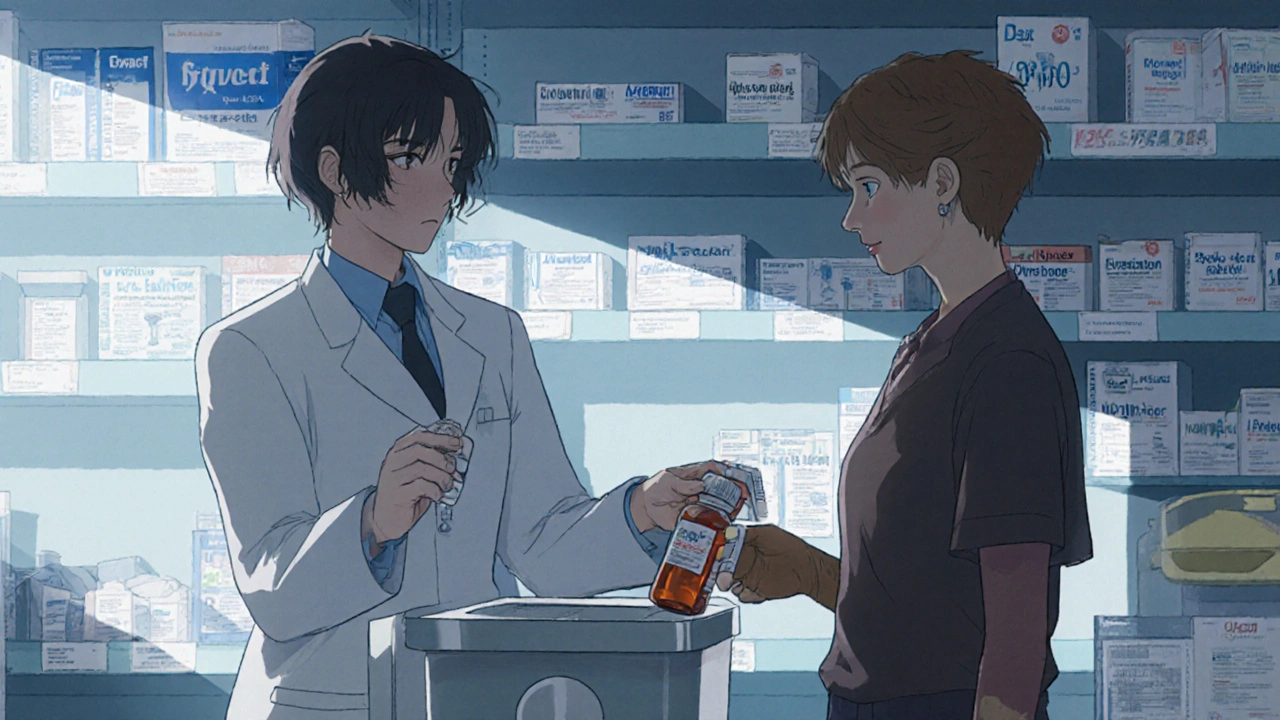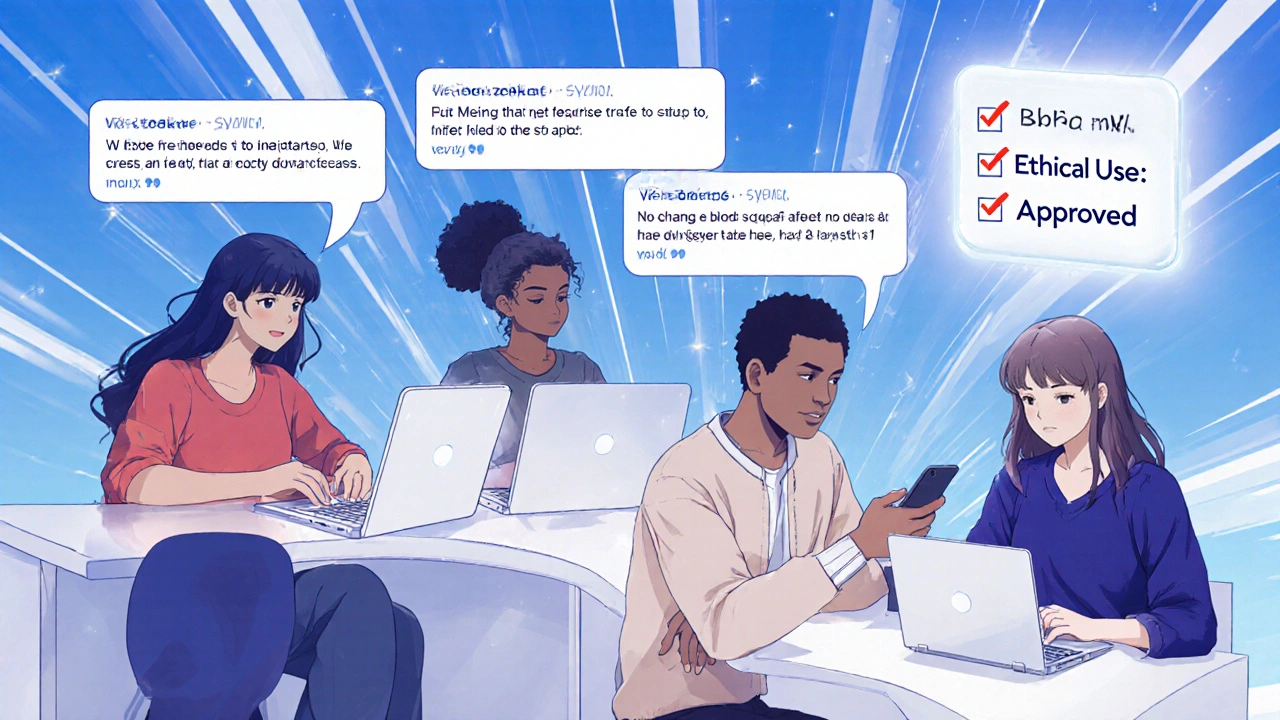How to Get Free Medication Samples Ethically and Track Lot Expiration Dates
 Nov, 18 2025
Nov, 18 2025
Getting free medication samples might sound like a simple way to save money, but doing it the right way matters-both for your safety and for the integrity of the system. Many people don’t realize that pharmaceutical companies offer samples legally and ethically, but only if you follow the rules. And if you don’t track expiration dates? You could be risking your health. This isn’t about hoarding freebies. It’s about using samples responsibly to try new treatments before committing to a full prescription-and making sure nothing you take has gone bad.
Why Ethical Sampling Matters for Medications
Free medication samples aren’t giveaways. They’re part of a carefully regulated system designed to help patients try new drugs under supervision. Doctors often receive samples from pharmaceutical reps to give to patients who might not afford the full prescription upfront. But there’s also a growing number of legitimate platforms where patients can request samples directly, especially for chronic conditions like diabetes, high blood pressure, or depression. The key difference between ethical and unethical sampling? Intent. If you’re signing up for samples because you genuinely want to try a new medication and give honest feedback, you’re doing it right. If you’re collecting them to resell, stockpile, or use past their expiration date, you’re breaking the rules-and potentially putting yourself at risk. According to the FDA’s 2022 guidelines, all prescription medication samples must include clear lot numbers and expiration dates. A 2023 study in the Journal of Clinical Pharmacy and Therapeutics found that 1 in 5 expired samples distributed through non-medical channels had been stored improperly, increasing the risk of degradation and loss of effectiveness. That’s why ethical participation isn’t just about being honest-it’s about being safe.Where to Get Free Medication Samples Legally
Not all sample platforms are created equal. Some focus on cosmetics or snacks. Others, like BzzAgent and SampleSource, have dedicated health and wellness categories that include over-the-counter (OTC) medications, vitamins, and even prescription samples through partnered clinics. Here are the most reliable options in 2025:- BzzAgent: One of the oldest and most trusted platforms. They work directly with major pharma brands like Pfizer, Merck, and Novo Nordisk. Most samples are full-size, not trial packs. You’ll need to complete a detailed health profile, including conditions you manage and medications you’re currently taking. Selection is based on relevance, not luck.
- SampleSource: Offers a wide range of health products, including OTC pain relievers, allergy meds, and supplements. Their system requires you to list allergies, intolerances, and medical conditions. Users with complete profiles have a 78% higher chance of being selected.
- ProductSamples.com: While not exclusive to medications, they partner with brands that distribute insulin test strips, blood pressure monitors, and vitamin packs. Their process is straightforward: sign up, wait for notifications, receive, review.
- Pharmaceutical company websites: Many brands like Eli Lilly, GlaxoSmithKline, and Abbott have direct sample request forms on their patient support pages. These are often tied to insurance verification or doctor referrals.
Important: Never sign up for a sample that asks for your credit card. Legitimate medication sample programs do not require payment upfront. If a site says “free sample, but you must enroll in a subscription,” walk away. That’s a trap.
How to Track Lot Numbers and Expiration Dates
Every medication sample comes with a lot number and an expiration date. These aren’t just for show. They tell you exactly when the product was made and when it stops working properly. Lot numbers follow different formats depending on the manufacturer:- Procter & Gamble / Johnson & Johnson: YYWWDD (Year, Week, Day)
- L’Oréal / Allergan: DDMMYY (Day, Month, Year)
- Pfizer / Novo Nordisk: Often alphanumeric, like A123B456
Don’t guess. Always check the manufacturer’s website for their lot code decoder. For example, Pfizer’s lot number lookup tool lets you enter the code and get the exact manufacture and expiry dates.
Here’s what you should track for every sample you receive:
- Product name and brand
- Lot number
- Manufacture date (if listed)
- Expiration date
- Date received
- Feedback deadline (if applicable)
- Review status (completed, pending, skipped)
Use a simple Google Sheet or a free app like SampleTracker (available on iOS and Android). One user in Sydney, Lisa M., started tracking her samples after she accidentally took a 14-month-old allergy pill. “It looked fine,” she said. “But the label said it expired in April 2024. I didn’t even remember I had it.” She now logs every sample within 24 hours of receipt.

Why Expiration Dates Are Non-Negotiable
Medications don’t just “go bad” like milk. They lose potency. Some become toxic. A 2023 MIT study found that expired insulin can lose up to 40% of its effectiveness after just three months past the expiry date. For someone with Type 1 diabetes, that’s dangerous. The FDA says most medications retain at least 90% of their potency for 1-5 years past the printed date-if stored properly. But samples are often shipped from warehouses with variable temperatures. If a sample was sitting in a hot truck for days before delivery? It might be weaker than the label says. Dr. Marcus Chen, a supply chain expert at MIT, warns: “Products nearing expiration are 3.2 times more likely to be distributed as samples.” That’s not a coincidence. Companies want to clear old stock. But if you don’t check the date, you’re the one who ends up paying the price.How to Give Honest Feedback Without Getting Flagged
Platforms like BzzAgent and SampleSource track your review history. If you always give 5-star ratings without detail, you’ll get removed from future campaigns. Why? Because brands want real feedback. Here’s how to write feedback that works:- Be specific: “The pill was hard to swallow” or “I didn’t notice a difference in my blood sugar after 10 days.”
- Include side effects: Even if they’re minor. “Felt slightly dizzy after taking it on an empty stomach.”
- Don’t exaggerate: Don’t say “this changed my life” if it didn’t.
- Disclose if you’re already on a similar medication.
The American Marketing Association’s 2022 ethics guidelines say you must disclose if you have a professional relationship with a competing brand. If you’re a nurse who works with a rival drug manufacturer, mention it. Transparency builds trust.
One user, Ryan T., got a BzzAgent sample of a new migraine med. He wrote: “It helped with pain, but made me nauseous. I tried it with food and the nausea went away. I’d take it again if my doctor approved.” That review led to the brand changing their dosing instructions.

Red Flags: When a Sample Program Isn’t Ethical
Watch out for these warning signs:- They ask for your credit card or bank details to “verify identity.”
- The site has no physical address or contact info.
- They promise “guaranteed samples every week.”
- You’re told to post about the product on social media without disclosing it’s a free sample.
- The expiration date is missing, blurry, or handwritten.
The FTC fined three companies over $43,000 each in 2023 for failing to disclose that samples were received in exchange for reviews. If you’re posting on Instagram or TikTok about a free med sample, you must say “Received free from [Company].” Otherwise, you’re violating federal law.
What to Do With Expired Samples
Never flush them. Never throw them in the trash. Don’t give them to friends. In Australia, the Safe Medication Disposal Program (run by pharmacies under the National Drug Strategy) accepts expired medications. Most major pharmacies like Chemist Warehouse, TerryWhite Chemmart, and local independents have drop-off bins in-store. Some even offer free postage labels for mail-back disposal. If you’re unsure, call your local pharmacy. They’ll tell you how to dispose of it safely. In Sydney, the City of Sydney Council runs monthly drug take-back events at community centers-check their website for dates.Final Tips: Make It Sustainable
- Only sign up for 2-3 platforms max. Too many = overwhelm and missed deadlines. - Set a calendar reminder for every sample’s expiration date. - If you don’t use a sample before it expires, dispose of it properly. No guilt. - If a sample helps you, talk to your doctor about getting a prescription. That’s the real goal. - Never resell samples. It’s illegal, dangerous, and breaks the system for everyone else.Free medication samples can be a real lifeline-if you treat them with respect. Track the dates. Give honest feedback. Dispose of what you don’t use. Do that, and you’re not just saving money-you’re helping the system work better for everyone.


Andrew Baggley
November 20, 2025 AT 21:21This is the kind of practical, life-saving info we need more of on Reddit. I’ve been getting samples through BzzAgent for my blood pressure med for over a year now, and tracking expiration dates with a Google Sheet has saved me from two near-misses. One pill looked fine-until I checked the lot number and realized it was 11 months past expiry. Didn’t take it. No regrets.
Also, never trust a site that asks for credit card info. I got flagged by a scam site once and had to dispute a $79 ‘membership fee.’ Legit programs? Zero cost. Zero tricks. Just honesty.
Codie Wagers
November 22, 2025 AT 14:15Let us not confuse ethical behavior with bureaucratic compliance. The system is designed to extract value from vulnerable populations under the guise of ‘help.’ You are not ‘helping the system’ by playing along-you are legitimizing a corporate strategy to offload inventory while maintaining moral high ground.
That ‘2023 MIT study’? It was funded by a pharmaceutical consortium. The FDA’s 90% potency claim? Based on lab conditions, not the reality of a package left in a Texas mailbox for three days in July. You think you’re being responsible? You’re just the obedient consumer the industry wants you to be.
Paige Lund
November 24, 2025 AT 03:25So… I sign up for a free pill, track its expiration date like it’s my kid’s birthday, and then what? I’m supposed to tell my doctor I tried it? Like they don’t already have a million samples in their office and a quota to meet?
I’ll pass. I’ll just keep buying the generic. Less drama, less paperwork, less guilt.
Reema Al-Zaheri
November 24, 2025 AT 09:50Thank you for this comprehensive guide. I have been using SampleSource for my vitamin D supplements, and I maintain a detailed log in a spreadsheet: product name, lot number, receipt date, expiration date, and feedback submission status. I also cross-reference the manufacturer’s lot decoder, as inconsistencies are common. One sample from Novo Nordisk listed an expiration date of 2026, but the lot number decoder indicated 2024. I contacted customer service and received a replacement. Transparency is non-negotiable.
Furthermore, I have never received a sample that required payment, nor have I encountered a platform without a physical address. I recommend verifying all entities through the Better Business Bureau before submission. Integrity begins with verification.
Michael Salmon
November 26, 2025 AT 02:09Oh, so now we’re supposed to be ‘ethical’ about getting free medicine? Who died and made you the FDA? You think this system isn’t rigged? Companies give samples to people who’ll write glowing reviews, then sell the damn pills at triple the cost. You’re not saving money-you’re being manipulated.
And don’t get me started on ‘feedback.’ You think Pfizer gives a damn about your ‘slight dizziness’? They want your data, your demographics, your social security number. This whole thing is a marketing funnel dressed up like a public service. Wake up.
Derron Vanderpoel
November 26, 2025 AT 18:03I just want to say thank you to whoever wrote this. I’m on insulin, and I’ve been too scared to ask for samples because I thought it was sketchy. This changed my mind.
My mom had a stroke last year, and we’re barely keeping up with bills. I signed up for the Eli Lilly program last week. Got my first box yesterday. It’s not a miracle, but it’s one less thing I have to panic about.
I’m logging every date. I’m not letting myself forget. And if I ever feel guilty about taking it? I’m gonna remember that someone, somewhere, took the time to write this and say it’s okay to ask for help.
Thank you. Really.
P.S. I cried reading this. I don’t cry often. But this? This felt like someone saw me.
Timothy Reed
November 26, 2025 AT 22:43Excellent summary. The emphasis on proper disposal is particularly critical. Many individuals are unaware that flushing medications contributes to environmental contamination and poses risks to aquatic ecosystems. The Safe Medication Disposal Program in Australia is a model worth emulating globally.
Additionally, the recommendation to limit participation to two or three platforms is prudent. Overextension leads to missed deadlines, incomplete feedback, and diminished credibility within these programs. Consistency, not volume, yields sustainable outcomes.
For those seeking to participate, I recommend maintaining a dedicated email address for sample requests to avoid inbox clutter and ensure timely responses to eligibility notifications.
Christopher K
November 27, 2025 AT 17:32Free medicine? From a country that can’t even fix its own healthcare? You’re out here playing nice with Big Pharma while Americans die because their insurance won’t cover the $500 pill.
Get a real job. Get real insurance. Stop kissing the corporate butt just to get a free box of pills. This isn’t ‘ethical’-it’s pathetic.